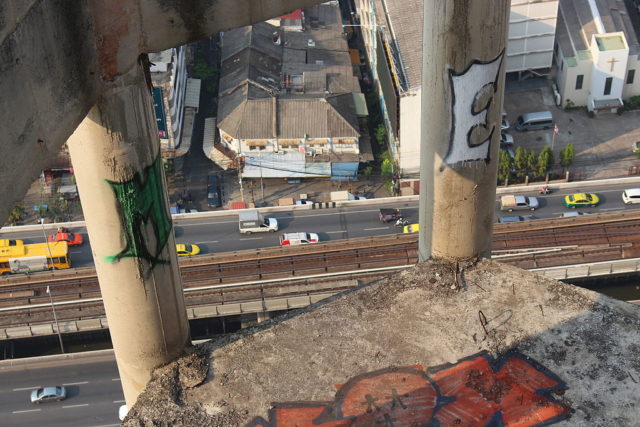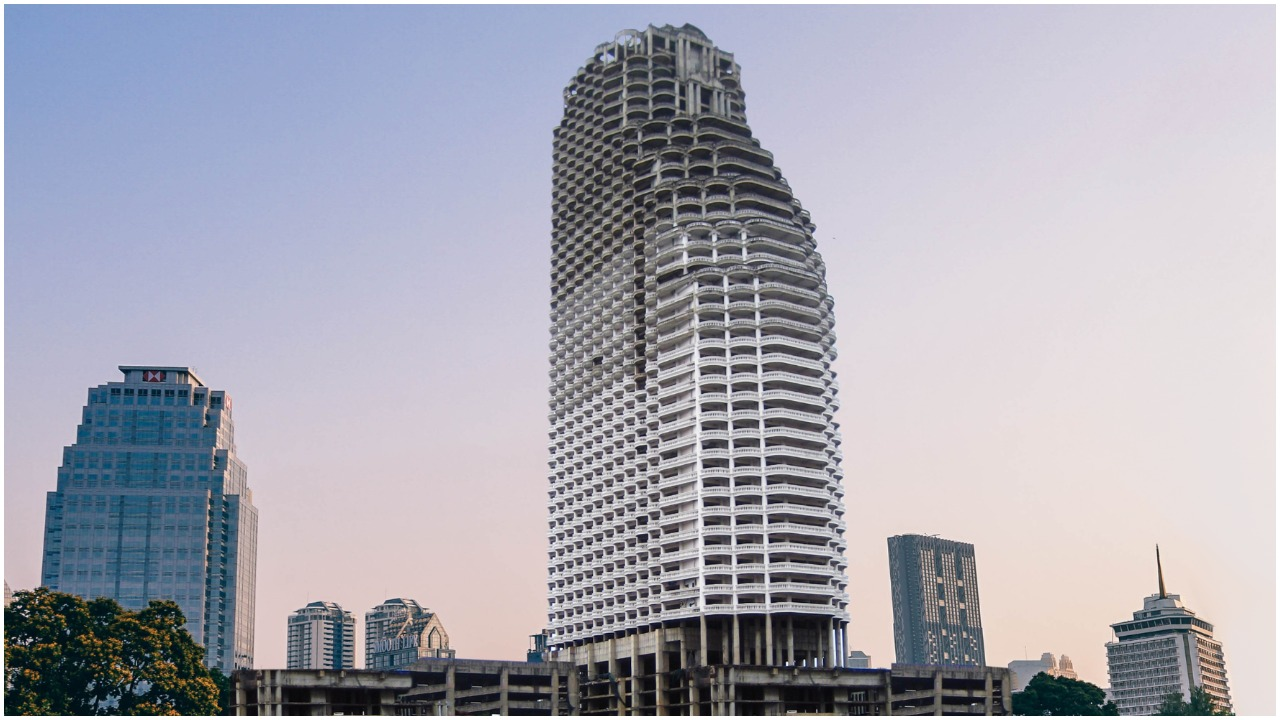In 1990, Thailand began a period of rapid economic development, including building skyscrapers. For this reason, in the early nineties, many large construction projects appeared in the form of high-rise buildings.
Developers wanted to construct visually impressive office buildings and residential complexes to highlight the developing economy.
One of these projects was the unique Sathorn Unique skyscraper, which is located in the capital of Thailand, Bangkok.
The architect of Sathorn Unique was the real estate developer Rangsan Torsuwan. Another one of his projects was the State Tower building, which boasts a forty-story atrium as well as the world’s highest open-air restaurant, Sirocco, on the 64th floor.
The design of the Sathorn Unique consisted of 49 floors, including two floors of underground parking. The skyscraper covers an area of 3,200 square meters (34,444 square feet). Generally, it was built in the Rangsan style, but there are also neo-Greek elements that you can see in the columns and on the balconies.
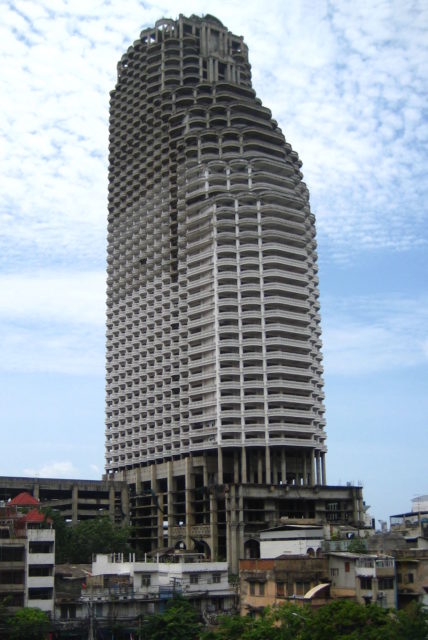
The tower was supposed to contain 600 apartments. Thai Mex Finance and Securities Company financed the design, and Si Phraya Co. Ltd. was the main construction contractor. The project itself was owned by Sathorn Unique Co. Ltd.
The skyscraper is situated next to BTS Saphin Taksin, a minute’s walk from the subway station.
Rangsan Torsuwan became the center of controversy in 1993. He was arrested under suspicion of plotting to assassinate Supreme Court President Praman Chansue. The assassination did not take place, but Torsuwan’s trial dragged on for 15 years.
Eventually, in 2008, he was found guilty, but in 2010, the Court of Appeal acquitted Rangsan. This case had a terrible effect on Rangasan’s reputation and consequently a negative impact on his ability to obtain funds for this construction project.
While Rangasan was struggling with his legal case, a financial crisis hit Thailand in 1997 due to reckless investment and unpaid debts. Sathorn Unique was 80% complete at this time but, due to the crisis, construction was suspended.
The crisis resulted in about 300 unfinished high-rise projects in the city. Bangkok’s real estate market began to collapse, and the companies that financed the Sathorn Unique project went bankrupt.
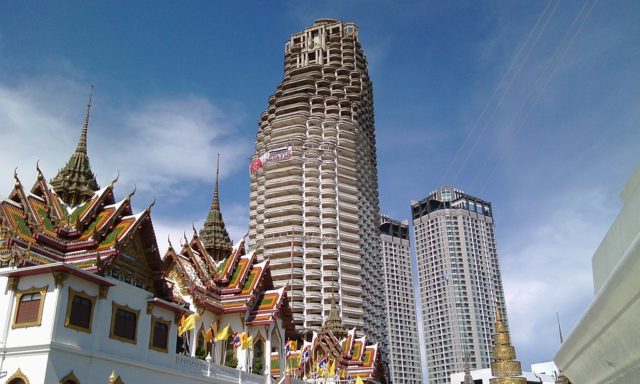
The country’s economy gradually recovered, but it took many years. Most of the unfinished projects were eventually completed, but the Sathorn Unique Tower remained abandoned.
Rangsan’s son, Pansit, joined the firm in 2004 and tried to negotiate for funds to refinance the project. However, these efforts were ultimately in vain because his father insisted that the project should be sold at a price that would enable him to repay the original buyers in full instead of being forced to declare bankruptcy.
Sathorn Unique has become an unofficial attraction in Thailand. Even though the building is officially closed to visitors, it is still regularly visited by graffiti artists and city researchers, and it also attracts foreign tourists.
However, it is a very dangerous place to enter, and visitors do so at their own risk – particularly as floors inside the building have been known to collapse.
The building has been referred to as a “ghost tower,” the name given to the high-rise buildings in Bangkok that have been started then abandoned. However, there is another reason why the local population has given the skyscraper this name.
In December 2014, a photographer was exploring the building and he found the body of a 30-year-old tourist from Sweden on the 43rd floor.
After this incident, there was much discussion about the safety of the tower, and in 2015, Pansit Torsuwan brought trespassing charges against five people who had entered the tower illegally and then posted photos or videos of themselves doing so on the internet.
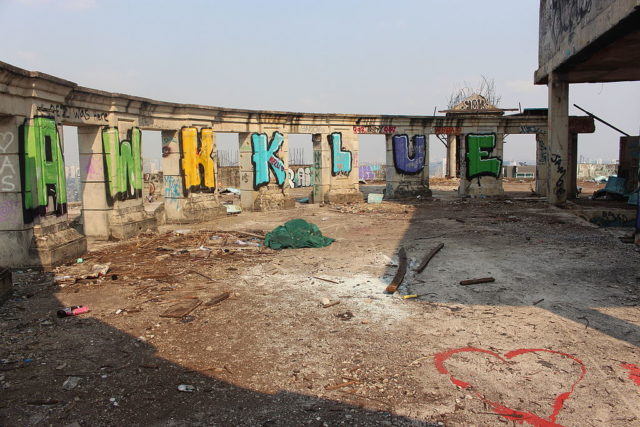
Pansit stated that the purpose of the criminal charges was his desire to deter people from unsafe entry into the building. He commented that, since 2014, the number of people illegally accessing the building had increased sharply.
In 2017, with the permission of Pansit, the Siam Museum held a seminar in the building, which was dedicated to the twentieth anniversary of the financial crisis. Pansit also allowed the building to be used as a location for the horror film The Promise.
Due to the large number of fatalities, the authorities closed all entrances and exits to the building. In early 2016, the tower was surrounded by a corrugated tin fence. There are currently no plans for development of this site.
Local people have some superstitions about what may have caused the project to fail so badly. One theory suggests that the land on which the building was constructed is a former cemetery.
It has also been put forward that the shadow of the building falls over the nearby Buddhist temple of Wat Yan Nawa and this inauspicious fact has resulted in the failure of so many attempts to develop this site.
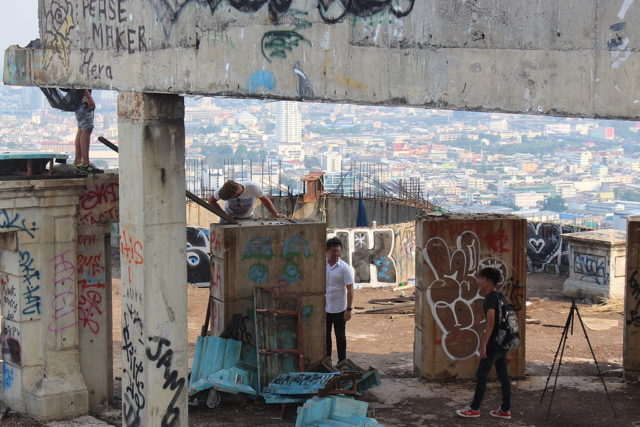
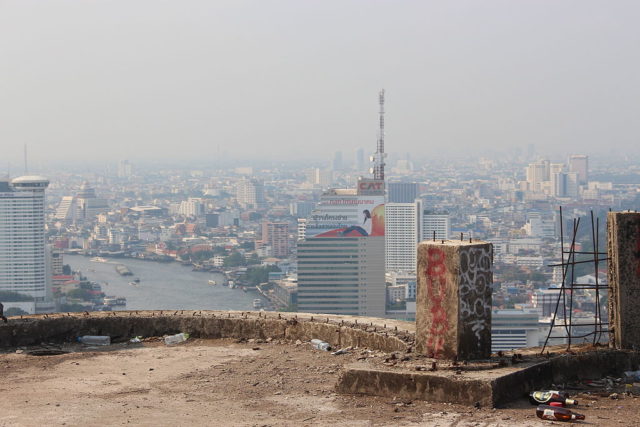
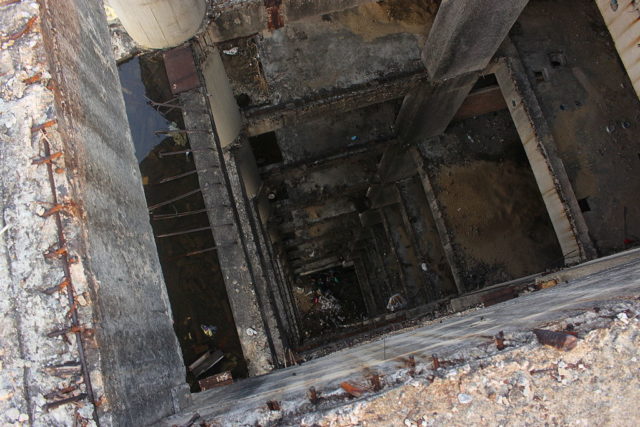
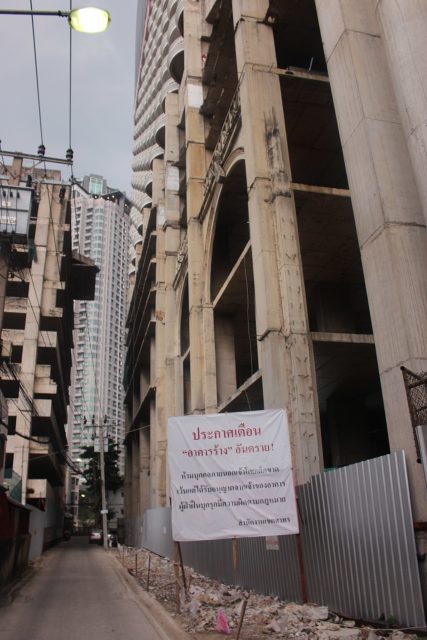
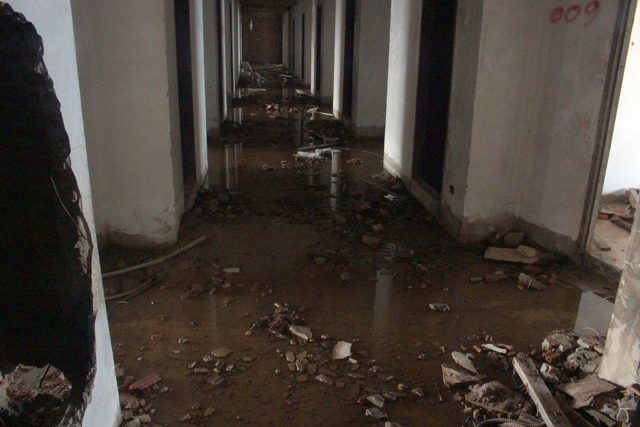
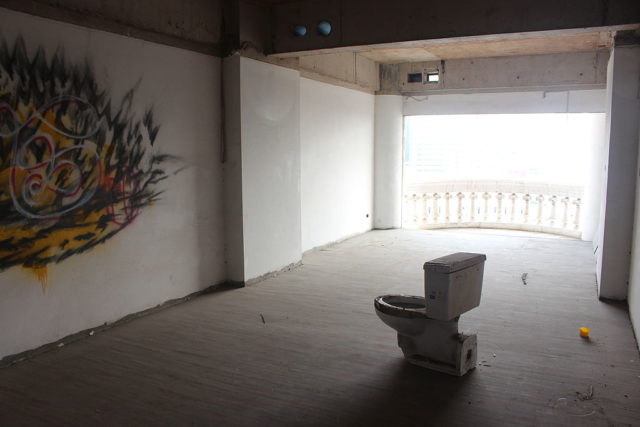
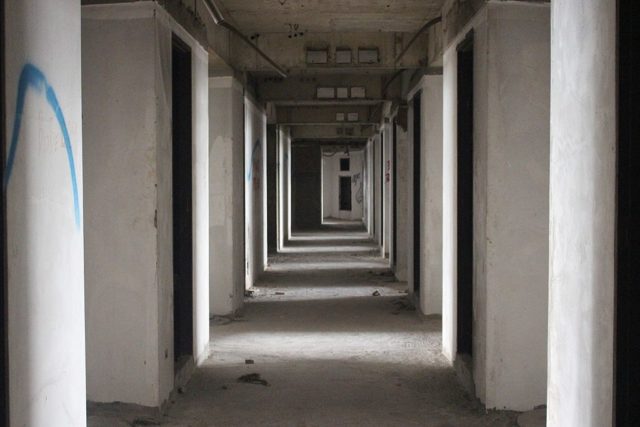
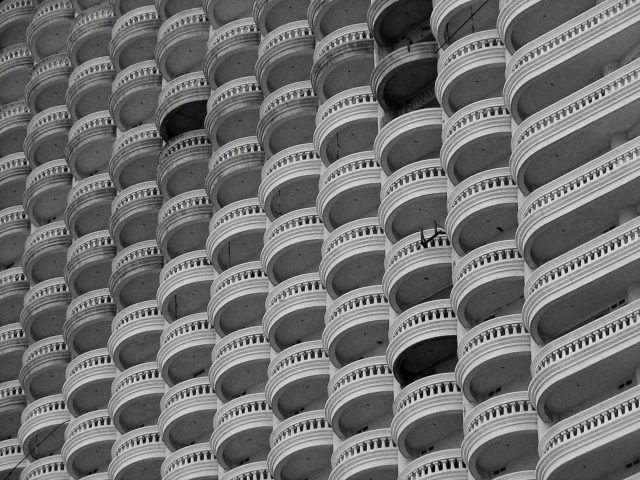
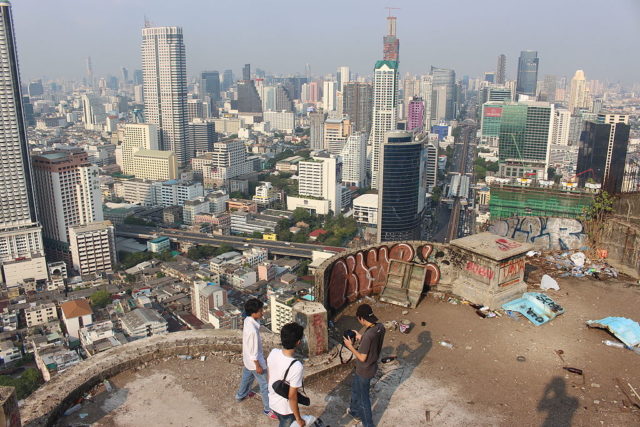
Another Article From Us: The Argentina Town Underwater for 25 Years
